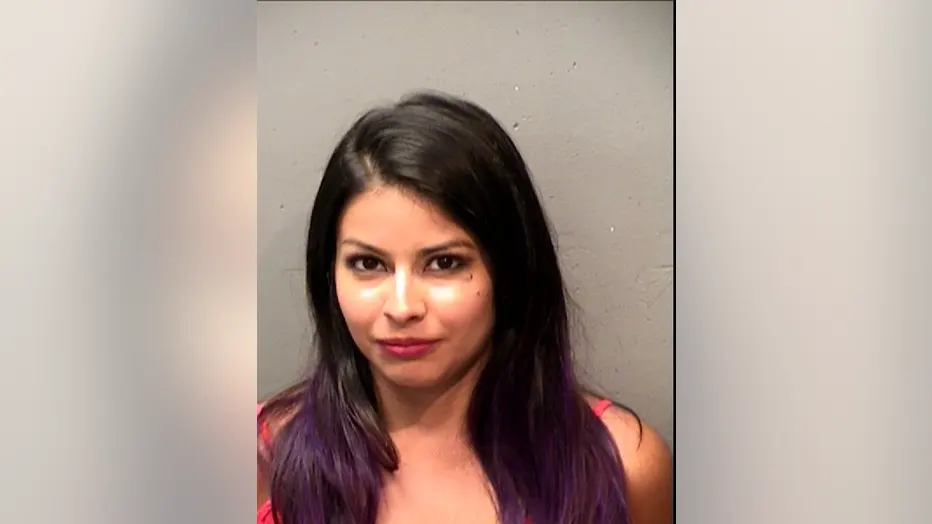Godley Teacher Fired Sparks Debate on Professional Conduct and Free Speech
Introduction
The recent firing of a teacher in Godley has ignited a heated debate among education professionals, parenting communities, and legal advisors. The incident, which has garnered significant media attention, raises critical questions about professional conduct, free speech, and the boundaries of teacher-student interactions.
In this blog post, we will explore the various facets of this controversy. We will examine the circumstances surrounding the Godley teacher’s firing and discuss its implications for the education sector. Our goal is to provide valuable insights and foster a deeper understanding of the issues at hand.
Background of the Incident
The “Godley teacher fired” incident began when a high school teacher at Godley Independent School District allegedly posted controversial comments on social media. These comments were perceived by some as inappropriate and unprofessional, leading to complaints from parents and students. The school administration quickly responded by placing the teacher on administrative leave and conducting an investigation.
After a thorough review, the school board decided to terminate the teacher’s employment, citing violations of the district’s code of conduct and ethical standards. This decision has sparked a wave of reactions, with some applauding the school board’s action and others criticizing it as an infringement on the teacher’s right to free speech.
Exploring Professional Conduct
Professional conduct is a fundamental aspect of any educator’s role. Teachers are expected to uphold high ethical standards, both in and out of the classroom. The “Godley teacher fired” case brings to light the importance of maintaining professionalism, especially in the digital age where personal and professional boundaries can easily blur.
In this section, we will explore what constitutes professional conduct for educators. We will also discuss the potential consequences of failing to adhere to these standards and how schools can support their staff in navigating these challenges.

Social Media and Free Speech
Social media has become an integral part of our lives, offering a platform for self-expression and communication. However, the “Godley teacher fired” incident underscores the complexities of balancing free speech with professional responsibilities. Teachers, like all individuals, have the right to free speech, but this right is not absolute, especially when it conflicts with their professional duties.
Here, we will examine the legal and ethical dimensions of free speech for educators. We will discuss relevant court cases and legal precedents that offer guidance on this issue, providing a comprehensive overview of the rights and limitations faced by teachers in the digital age.
The Role of School Policies
School policies play a crucial role in shaping the professional conduct of educators. In the “Godley teacher fired” case, the school district’s code of conduct was a key factor in the decision to terminate the teacher’s employment. Clear and comprehensive policies can help prevent such incidents by setting expectations and providing guidelines for acceptable behavior.
In this section, we will explore how school policies can be designed to address the challenges posed by social media and other modern communication tools. We will also discuss the importance of regular policy reviews and updates to keep pace with evolving technology and societal norms.
Support Systems for Teachers
Teachers operate in a demanding and often stressful environment. The “Godley teacher fired” incident highlights the need for robust support systems to help educators manage their professional responsibilities and personal lives. Schools can support their staff by offering professional development opportunities, mental health resources, and clear communication channels.
We will explore various support mechanisms that schools can implement to foster a positive and supportive work environment for teachers. By providing these resources, schools can help teachers maintain professionalism while also safeguarding their well-being.
Parental Involvement and Expectations
Parents play a vital role in the education of their children, and their expectations can significantly impact a teacher’s professional conduct. The “Godley teacher fired” case shows how parental concerns and complaints can influence school decisions. It is essential for schools to engage with parents proactively and transparently to build trust and understanding.
In this section, we will discuss strategies for effective parent-teacher communication and collaboration. We will also explore how schools can manage parental expectations while ensuring that teachers have the support and autonomy they need to perform their duties effectively.
Community Reactions and Impact
The firing of the Godley teacher has elicited diverse reactions from the community. While some support the school board’s decision, others view it as an overreach. The incident has sparked conversations about the role of teachers, the limits of free speech, and the expectations placed on educators.
We will examine the various community responses to the “Godley teacher fired” incident. By understanding these perspectives, we can gain a deeper appreciation of the complex dynamics at play and the broader implications for the education sector.
Ethical Considerations
Ethics play a central role in the teaching profession. The “Godley teacher fired” case raises important ethical questions about the responsibilities and boundaries of educators. Teachers must balance their right to free speech with their duty to serve as role models and uphold the values of their profession.
In this section, we will explore the ethical considerations that educators must navigate in their professional lives. We will discuss how teachers can make ethical decisions and the role of schools in fostering a culture of integrity and accountability.

Legal Implications
The “Godley teacher fired” incident also has significant legal implications. Employment law, free speech rights, and school policies intersect in complex ways, and understanding these legal dimensions is crucial for educators, administrators, and legal advisors.
We will provide an overview of the relevant legal frameworks and precedents that apply to the “Godley teacher fired” case. By examining these legal aspects, we can better understand the rights and responsibilities of educators and the potential consequences of their actions.
Future Implications for Educators
The “Godley teacher fired” case sets a precedent that could influence future conduct in educational settings. As social media continues to evolve and become an even more embedded part of educators’ lives, there is an increasing need for clarity around the boundaries between personal expression and professional responsibilities. This incident highlights the importance of ongoing training for educators regarding digital citizenship and the impact of their online presence.
In this section, we will discuss the implications of this case for professional development programs and the need for schools to proactively address the challenges posed by modern communication. We will also consider how educational institutions can foster a culture of open discussion that allows teachers to navigate their rights while upholding the integrity of their role.
Building a Framework for Responsible Digital Engagement
To effectively navigate the challenges of digital engagement, schools must establish a robust framework that outlines responsible online behavior for educators. This framework should include clear guidelines that delineate acceptable conduct on social media and other digital platforms, as well as the implications of online interactions for their professional lives. Moreover, involving educators in the development of these policies can ensure that their insights and experiences are taken into account, fostering a sense of ownership and responsibility.
In this section, we will explore best practices for creating this framework, including professional development workshops focused on digital literacy, case studies of ethical dilemmas, and role-playing scenarios to prepare teachers for real-world situations. We will also highlight the importance of encouraging teachers to reflect on their online presence regularly, cultivating an environment where they feel empowered to express themselves while remaining mindful of their professional responsibilities. By implementing these strategies, schools can better equip educators to engage thoughtfully and responsibly in the digital age.
The Role of Technology in Teacher Professionalism
Technology is a double-edged sword in the realm of education, providing both opportunities and challenges for educators regarding professionalism. Digital tools can enhance instructional practices, facilitate communication with students and parents, and provide access to a wealth of resources. However, the increasingly blurred lines between personal and professional lives online can complicate the manner in which teachers are perceived and how they interact within their communities.
In this section, we will explore how technology impacts teachers’ professional identities and responsibilities. We will discuss the benefits of utilizing educational technology, such as online collaboration tools and learning management systems, alongside the potential pitfalls, such as misinterpretation of online content and breaches of privacy. By understanding these dynamics, schools can better prepare educators to navigate this complex landscape while reinforcing their commitment to professionalism and ethical conduct.
Lessons Learned
Every incident offers an opportunity for learning and growth. The “Godley teacher fired” case provides valuable lessons for educators, school administrators, and policymakers. By reflecting on this incident, we can identify best practices and strategies to prevent similar situations in the future.
In this section, we will summarize the key takeaways from the “Godley teacher fired” case. We will highlight actionable steps that schools and educators can take to foster a positive and professional learning environment.
Conclusion and Call to Action
The firing of the Godley teacher has sparked important conversations about professional conduct, free speech, and the role of educators. This incident serves as a reminder of the complex challenges faced by teachers in today’s digital age.
We encourage education professionals, parenting communities, and legal advisors to reflect on the issues raised by the “Godley teacher fired” case. By engaging in open dialogue and collaborative efforts, we can work towards creating a supportive and ethical educational environment for all.
For those interested in exploring this topic further, we invite you to join our upcoming webinar on professional conduct and free speech in education. Together, we can learn, grow, and make a positive impact on our schools and communities.














Post Comment